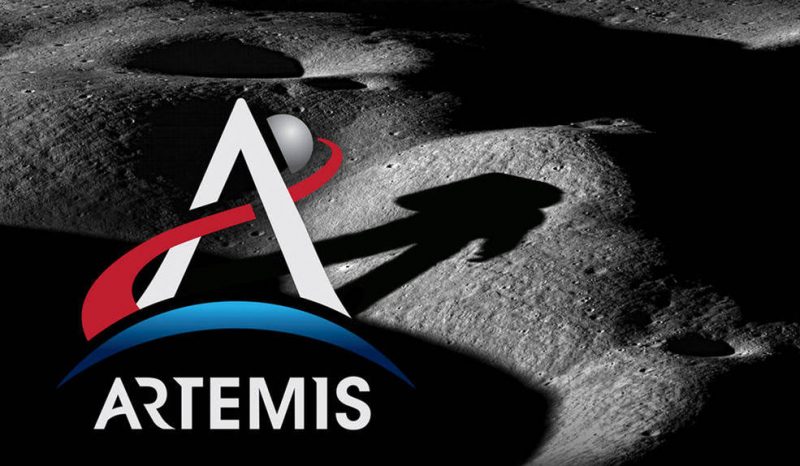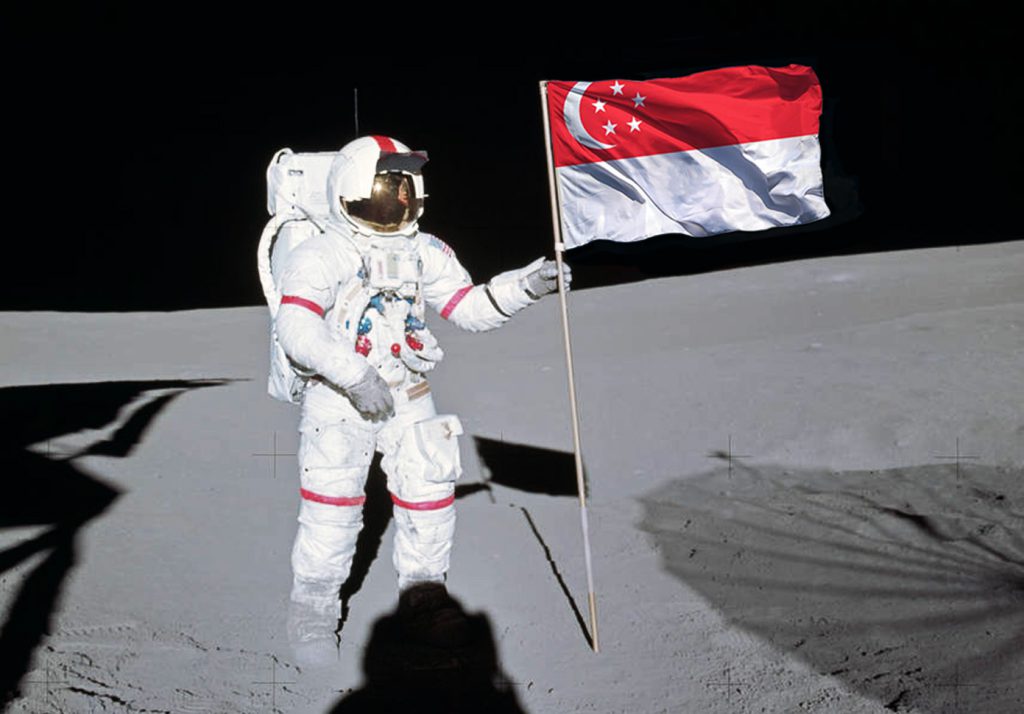You may have read it in the news last week that the Little Red Dot signed US-led Artemis Accords on space — particularly Moon — exploration and, to a degree, its future commercialisation.
So what is it about, how does it work and how can Singapore benefit from it?
On the face of it, there isn’t all that much substance in the document launched in 2020 by the outgoing Trump administration. It isn’t a legally binding agreement and there are no enforcement mechanisms beyond common will of participating countries.

However, it is also the first modern era attempt to set out the basic principles of space exploration, expanding on the goals of the original Outer Space Treaty signed in 1967, whose main focus was keeping space free from military conflict and national expansionism, outlawing appropriation of celestial bodies by any single country.
It is also a prerequisite for participation in NASA’s Artemis Program, whose goals are:
- sending people back to the Moon by 2025;
- establishing basis for sustainable human presence there;
- and launching future missions (including manned) to Mars and beyond.
We require more minerals
The quote from the legendary game Starcraft, immortalised by internet memes, seem to summarise the main practical, economic impact of the agreement. We do require more minerals — or, strictly speaking, mineable resources — particularly if we want to explore the cosmos.
Until now, the legal conditions for extracting any resources beyond Earth have been rather murky, but the Artemis Accords legalise it under Section 10, pos. 2:
The Signatories emphasise that the extraction and utilisation of space resources, including any recovery from the surface or subsurface of the Moon, Mars, comets, or asteroids, should be executed in a manner that complies with the Outer Space Treaty (OST) and in support of safe and sustainable space activities.
The Signatories affirm that the extraction of space resources does not inherently constitute national appropriation under Article II of the Outer Space Treaty, and that contracts and other legal instruments relating to space resources should be consistent with that Treaty.
Source: The Artemis Accords
Because the Outer Space Treaty — signed by most of the world’s nations — made it impossible for any single one to lay territorial claims of other celestial bodies or space, any extraction of resources needed to be framed in such a way as to not violate the ratified document.
Therefore, the new accord is a way for the US and its partners to create legal conditions for commercial mining operations, without breaching OST. The more widely it is adopted, the more likely it is for it to be come a de facto space law.

In essence, then, the accords are a document of political and economic importance, devised by the US to rally international support behind and gradually make it a legal status quo for human activity in outer space in the future.
Write the rules or have them imposed on you
As it is in life, if you’re not the one writing the rules, you’re going to have them imposed by someone else, typically a stronger or more advanced party.
For Singapore, it means joining 17 other signatories (thus far) in being the avant-garde of Moon exploration in the 21st century.
More pragmatically, the government is surely hoping these mutual rules of cooperation will enable domestic space industry — currently comprising 50 companies and over 1,800 people in the city-state — to take part in future scientific and commercial endeavours (by designing or manufacturing equipment or parts of it, to aid in the incoming missions to the Moon and beyond).

Both Russia and China have criticised the accords, but neither of them is in a position to mount a meaningful challenge. The former is bound to have its space efforts curtailed by international sanctions after its invasion of Ukraine, and the latter is still playing catch up, relying primarily on government financing for space missions.
Meanwhile, thanks chiefly to SpaceX, US is a leader in privatisation of access to space, including the Moon (assuming Elon Musk’s Starship succeeds as a heavy launch vehicle).
For this reason, the Artemis Accords are likely to be a legal outline for all activity in space and any country that has any hope or ambition of taking part should sign it.
As I explained in February, Singapore is in a remarkably good location to be the first major urban area with access to orbit (and beyond) in the world.
It has certainly recognised the business opportunities that development of the space sector brings — whether by participation in the Artemis program or any other commercial ventures including Earth-to-Earth logistics, orbital launches and exploration of the Solar system.
Being a member of a club operating within a common set of reasonable principles makes everything easier, both for the government and Singaporean space companies seeking their place in the global marketplace.
It is a small step made today that may be recognised as a giant leap for the country in the years to come.
Featured Image Credit: NASA, edited by Michael Petraeus










